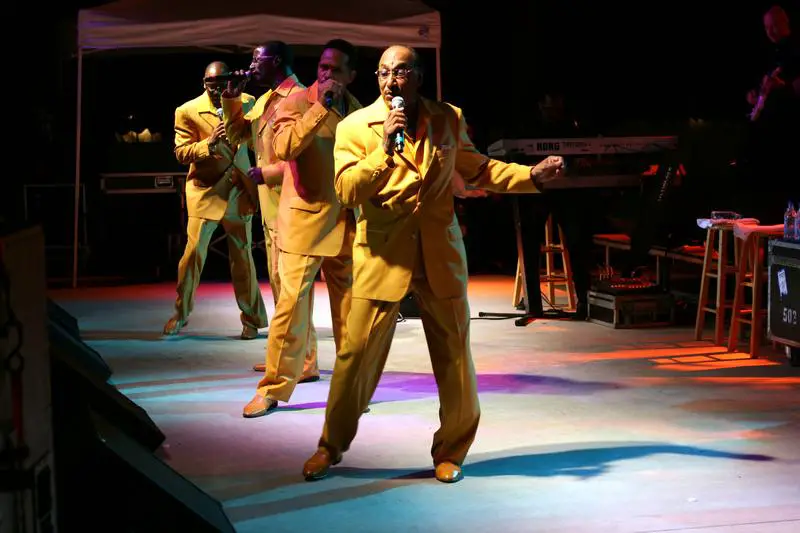Abdul “Duke” Fakir, the final original member of the renowned Motown group the Four Tops, died of heart failure on Monday, July 22 in his Detroit, Michigan home. He was 88. Fakir had been recently fighting bladder cancer, according to his family.
The Four Tops, famed for their enduring hits and contribution to the Motown sound, relied on Fakir’s smooth tenor voice to balance lead singer Levi Stubbs’ baritone. Fakir’s music career spanned seven decades, and he remained active in the industry until retiring earlier this year.
Native to Detroit, Fakir met his future bandmates Levi Stubbs, Renaldo “Obie” Benson, and Lawrence Payton at Pershing High School. In 1953, they formed a group called the Four Aims, which evolved into the Four Tops upon signing with Motown Records in 1964.
Quickly, the group rose to prominence as one of Motown’s landmark acts with a string of hits such as “I Can’t Help Myself (Sugar Pie Honey Bunch),” “Reach Out I’ll Be There,” and “Standing in the Shadows of Love.”
The Four Tops, with their harmonies and stage presence, were a mainstay of the 1960s music scene. The original group remained intact, unlike other Motown bands, until the deaths of Payton in 1997, Benson in 2005, and Stubbs in 2008. Fakir carried on with new members, ensuring the group’s legacy remained alive.
In 1990, the Four Tops were inducted into the Rock and Roll Hall of Fame. They received a Grammy Lifetime Achievement Award in 2009.
“We were more than just a singing group. We were brothers, and we stuck together through thick and thin,” Fakir once reflected on the group’s camaraderie. This sentiment was shared by many, including Motown founder Berry Gordy, who lauded Fakir’s commitment to the Four Tops.
Fakir’s passing represents a significant end of an era for Motown. As noted by Rolling Stone, Fakir’s dedication to keep the Four Tops’ music alive, even after the loss of his original bandmates, was remarkable. Despite health concerns, Fakir continued to tour until late last year.
Fakir, in addition to his musical career, was recognized for his benevolence and community engagement. He authored a memoir, “I’ll Be There,” in 2022 and was planning a Broadway musical based on the Four Tops’ story. His death has elicited a wave of tributes from admirers and peers.
Motown Museum chairwoman Robin Terry remembered Fakir as a “kind and supportive person” who was deeply connected with the museum. “Duke was not just a great singer; he was a great person who cared deeply about others,” Terry said, noting the lasting impact of Fakir’s contributions to music and his community.
Fakir is survived by his wife, children, grandchildren, and great-grandchildren. His death is a significant loss for the music industry, but his influence on Motown and popular music will continue to be felt.
In his tribute, renowned singer Smokey Robinson noted, “Duke’s voice and presence were a cornerstone of the Motown sound. He will be greatly missed, but his music will live on.”











